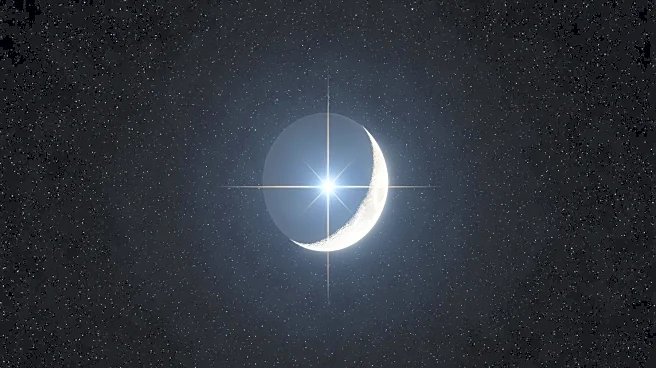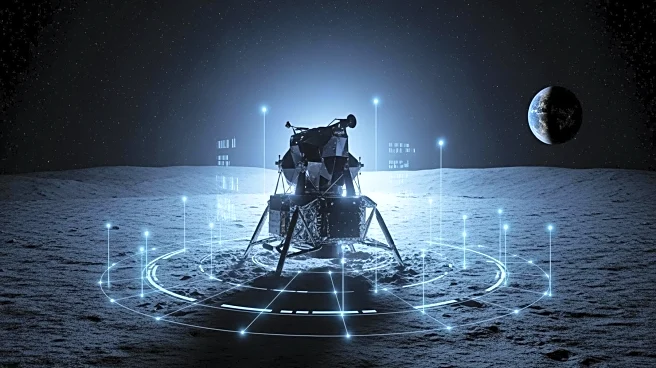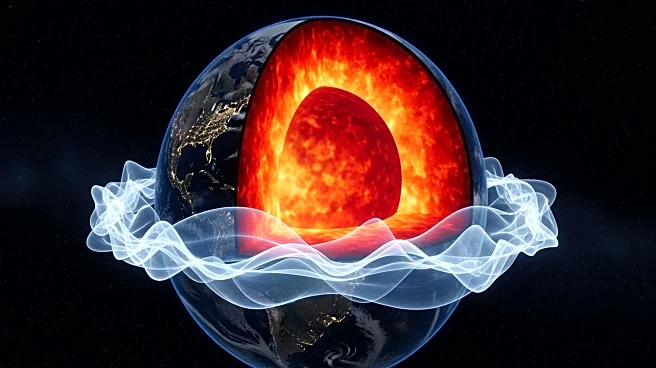What's Happening?
The new moon phase in October 2025 will bring dark skies ideal for stargazing, coinciding with the peak of the Orionid meteor shower. On October 24, the young moon will pass in front of the red star Antares,
visible from South America and the Falklands. This celestial event, known as an occultation, will be observable from locations such as Ushuaia, Argentina, where the moon will appear in the low southwestern sky. Antares will disappear behind the moon's upper right quadrant at 10:35 p.m. and reappear at 11:23 p.m. from the left side. Similar visibility is expected in Punta Arenas, Chile. The occultation will occur close to the horizon near sunset, providing a unique viewing opportunity for stargazers in the Southern Hemisphere.
Why It's Important?
This astronomical event highlights the unique stargazing opportunities available in the Southern Hemisphere, where celestial phenomena like occultations can be observed more frequently due to the positioning of stars and planets. The visibility of Antares' occultation offers educational and recreational opportunities for astronomy enthusiasts and professionals alike. Such events can increase interest in astronomy and science, potentially influencing educational programs and tourism in regions where these phenomena are visible. The occurrence also underscores the importance of global collaboration in astronomical observations, as different hemispheres offer varied perspectives on celestial events.
What's Next?
Following the occultation, stargazers can look forward to observing other planets visible in the night sky. Saturn, Jupiter, and Venus will be prominent, with Saturn rising first in the evening. Jupiter will follow, appearing in the constellation Gemini, while Venus will be visible just before dawn. These planetary positions provide further opportunities for observation and study, particularly in the Southern Hemisphere where Mars and Mercury are more visible. The continued visibility of these planets will allow for ongoing engagement with astronomy and potential advancements in celestial navigation and observation techniques.
Beyond the Headlines
The occultation of Antares by the moon serves as a reminder of the intricate dance of celestial bodies and the importance of understanding our universe. Such events can inspire cultural and philosophical reflections on humanity's place in the cosmos. Additionally, they highlight the need for preserving dark skies free from light pollution, which is essential for observing such phenomena. The event may also encourage discussions on the impact of climate change on atmospheric conditions that affect stargazing, emphasizing the need for environmental conservation.








